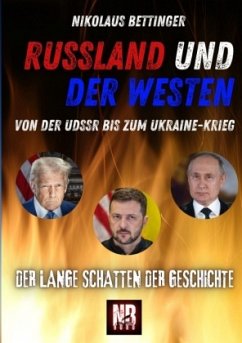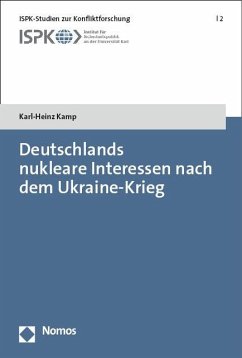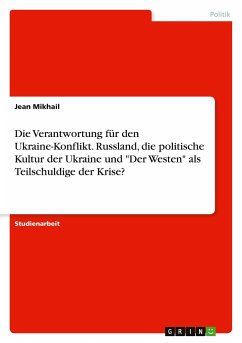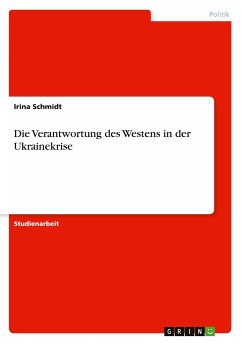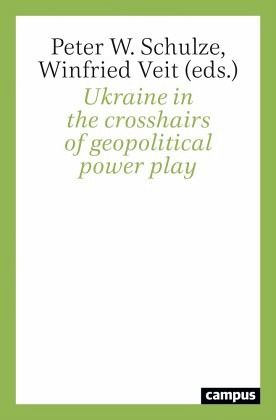
Ukraine in the Crosshairs of Geopolitical Power Play
Versandkostenfrei!
Versandfertig in 3-5 Tagen
46,00 €
inkl. MwSt.
Weitere Ausgaben:

PAYBACK Punkte
0 °P sammeln!
After years of stagnation, the neglected Ukraine conflict has once again returned to the international agenda. Volodymyr Zelensky's 2019 presidential election victory has led to changes in Ukraine's system of political governance. The new government broke the ice by abstaining from military narratives and cautiously opening avenues for communication with the separatist authorities in the Donbas region. Such changes forced the signatories to the Minsk II agreement and the parties to the Normandy Format, Russia, Germany, Ukraine, and France, to act. If the Ukraine conflict is seen as one of the ...
After years of stagnation, the neglected Ukraine conflict has once again returned to the international agenda. Volodymyr Zelensky's 2019 presidential election victory has led to changes in Ukraine's system of political governance. The new government broke the ice by abstaining from military narratives and cautiously opening avenues for communication with the separatist authorities in the Donbas region. Such changes forced the signatories to the Minsk II agreement and the parties to the Normandy Format, Russia, Germany, Ukraine, and France, to act. If the Ukraine conflict is seen as one of the main obstacles to a revitalized dialogue between the EU and Russia on a common European security and peace order, steps to resolve the conflict could be a key to embarking on such a path. The authors of this volume attempt here to define and analyse the variety of European and Russian objectives and the limits of compromise.
Dieser Artikel kann nur an eine deutsche Lieferadresse ausgeliefert werden.







